Rumor 1: The unified medical insurance quota will be cleared by the end of 2023?
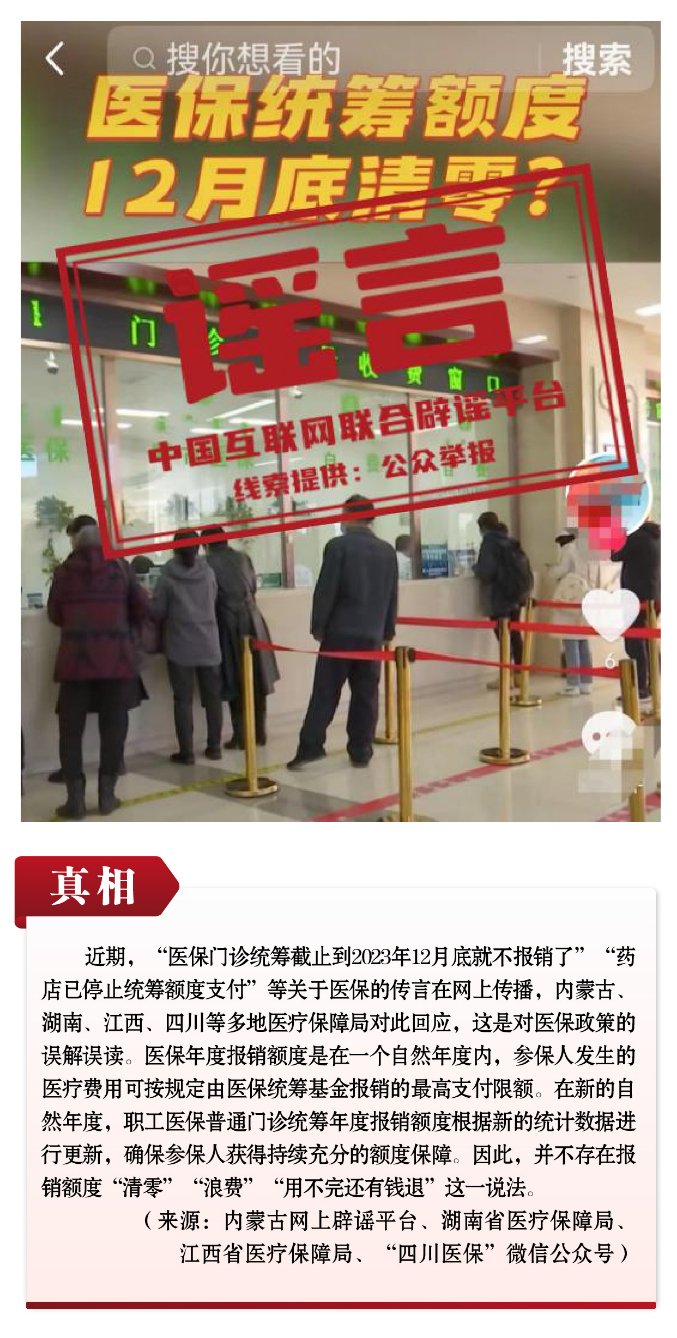
Rumor 2: Will the criteria for drunk driving change?
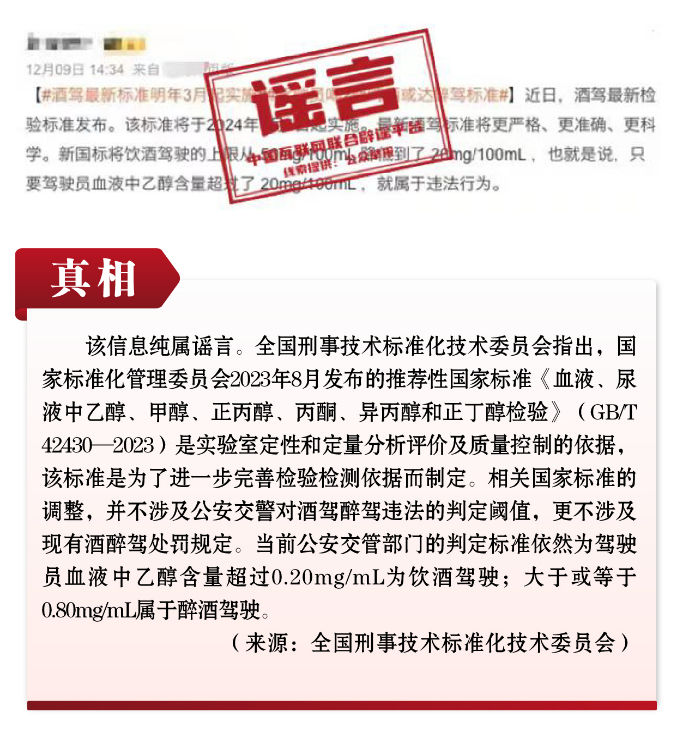
Rumor 3: The train ticket is refunded without deduction of service charge?
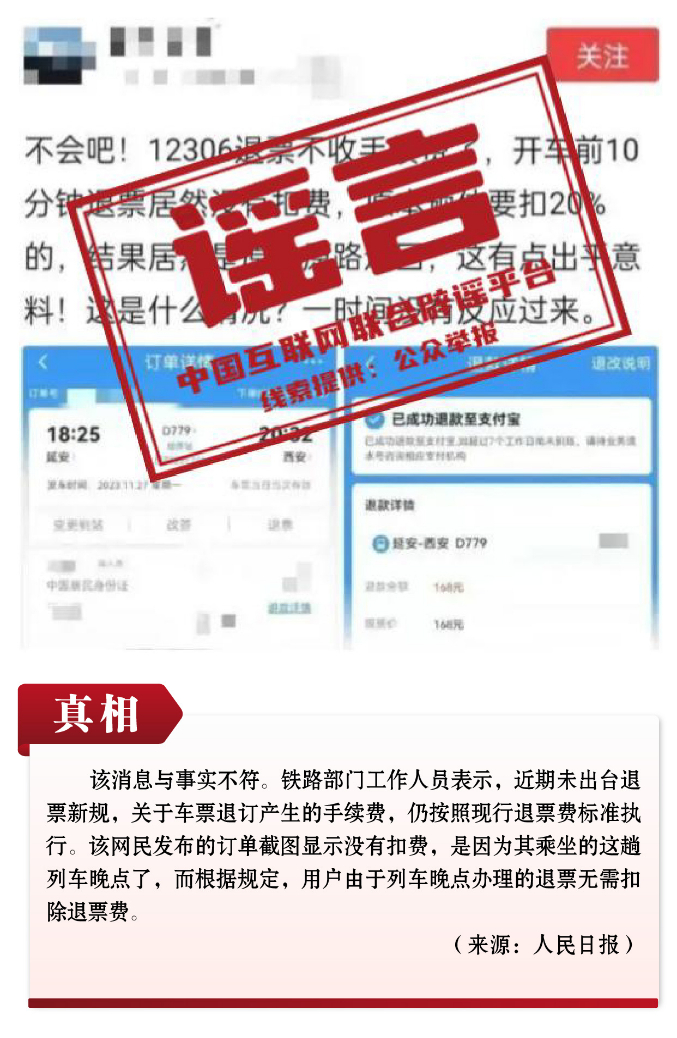
Rumor 4: Down jackets donated to the earthquake stricken area of Jishishan, Gansu, are sold for money?
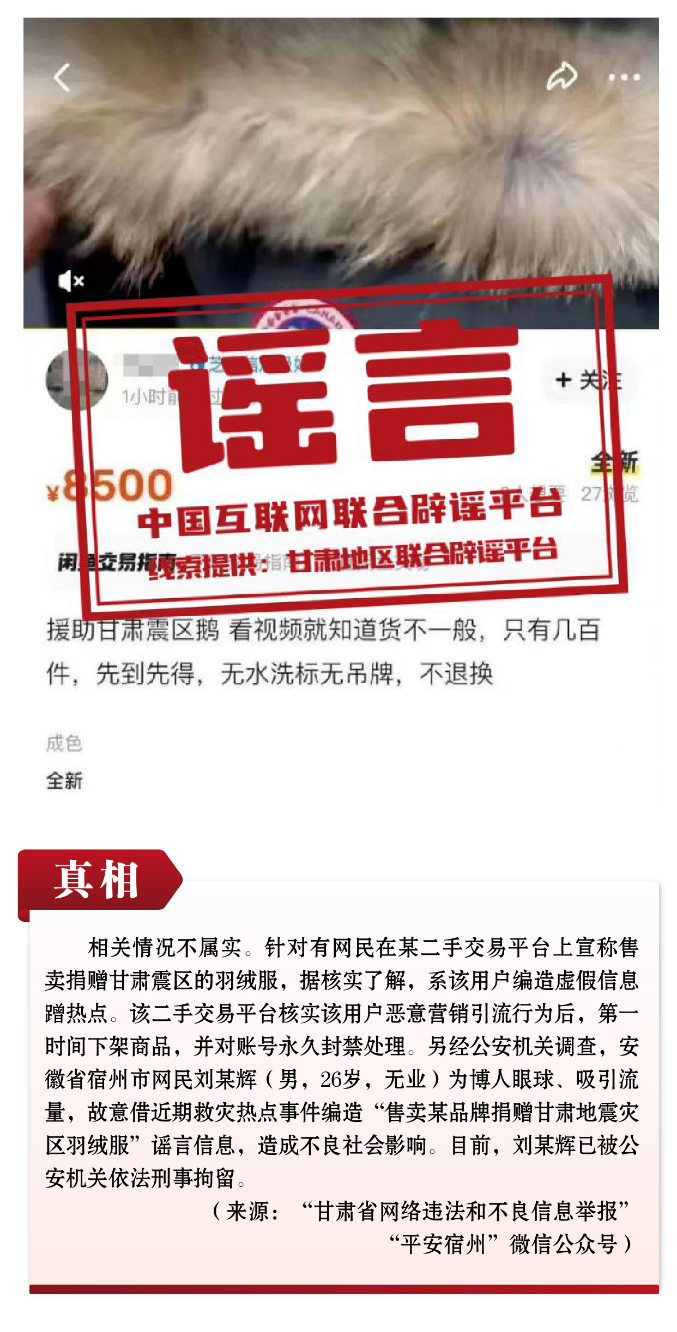
Rumor 5: Electric leakage in a college bathhouse in Zhengzhou, Henan, killed 17 students?
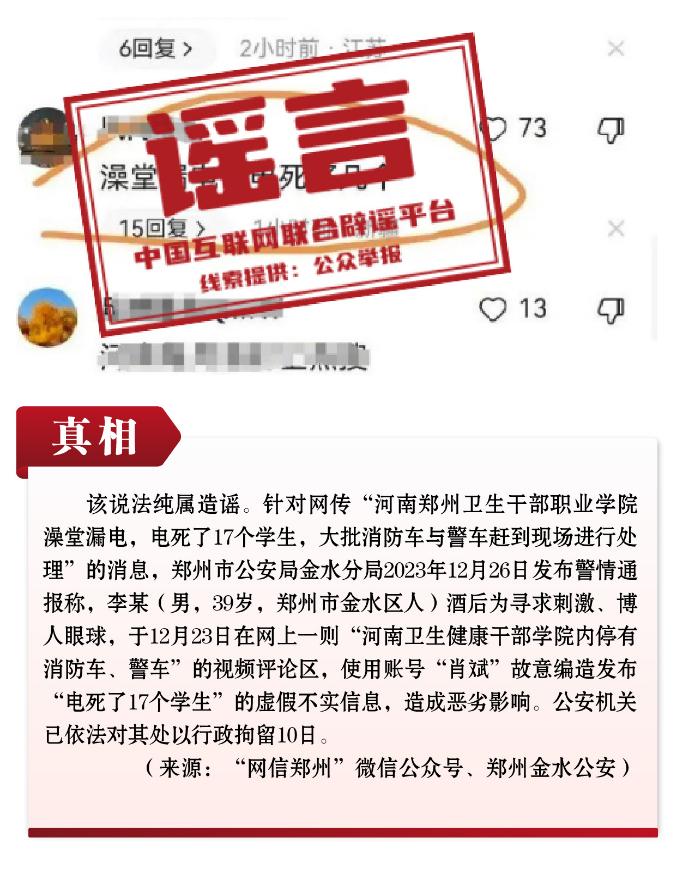
Myth 6: Guangzhou became the first city in China to restrict delivery of takeaway?
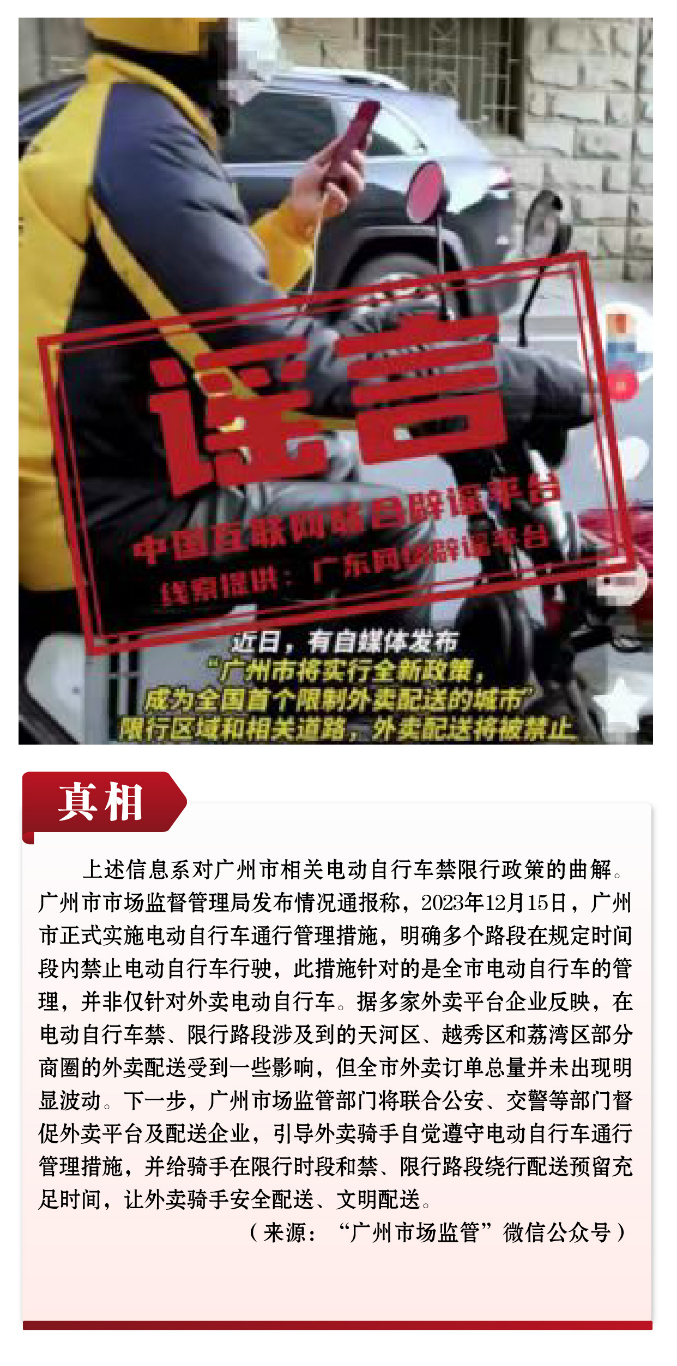
Myth 7: Snow can freeze the virus? Are fewer people sick in the snow?
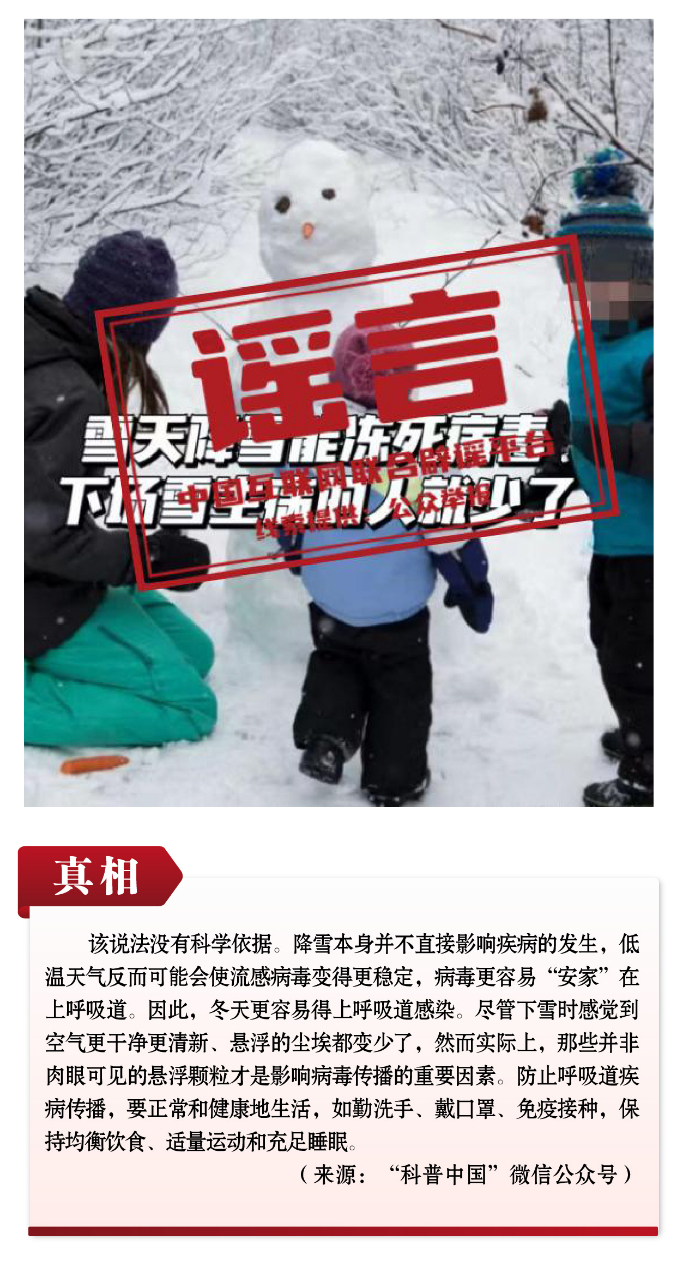
Myth 8: Do many types of toothpaste materials have cancer risk?
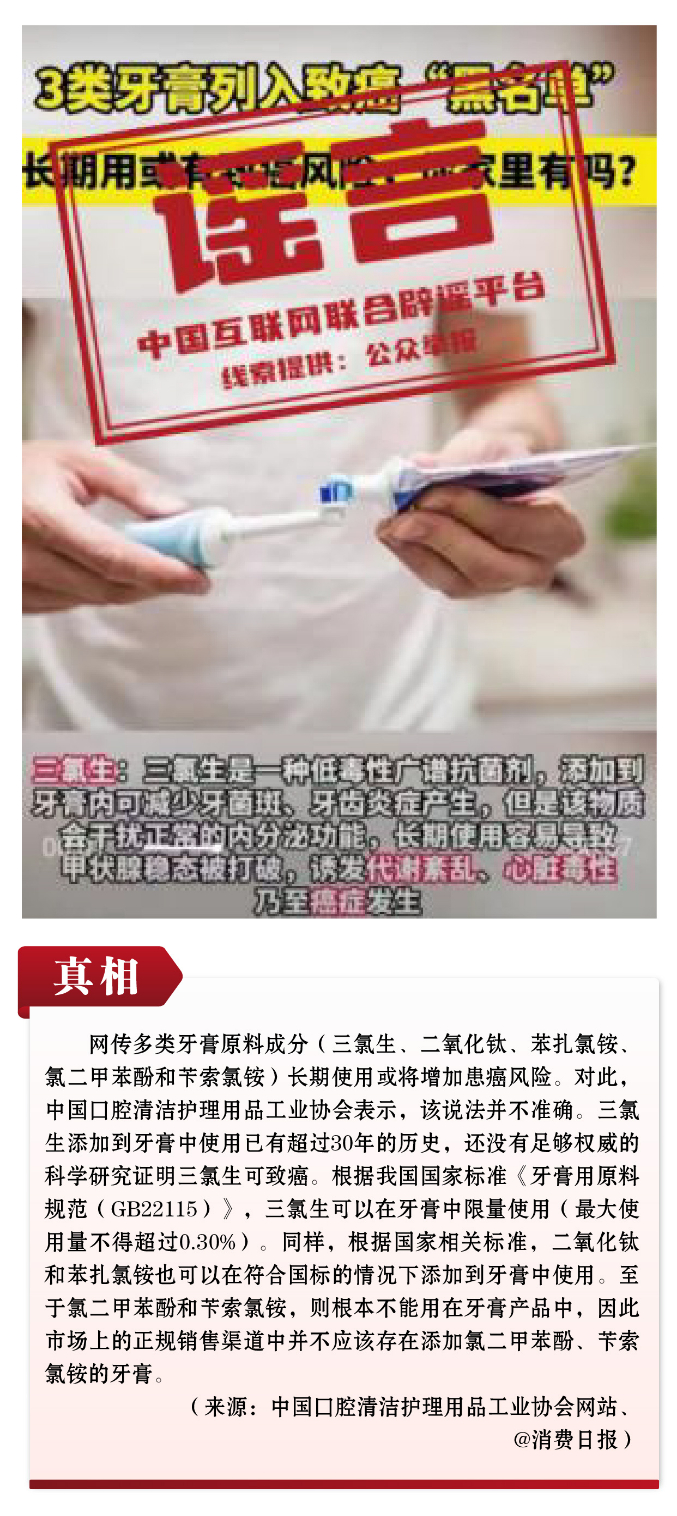
Myth 9: Is oseltamivir out of stock and its price increased?
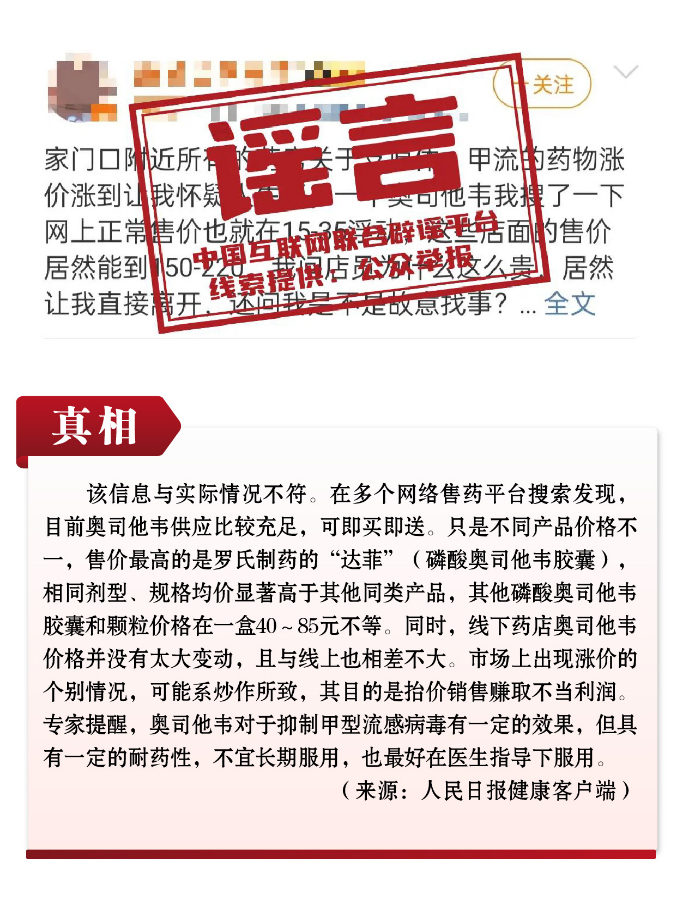
Myth 10: Are new energy vehicles more polluting than fuel vehicles?
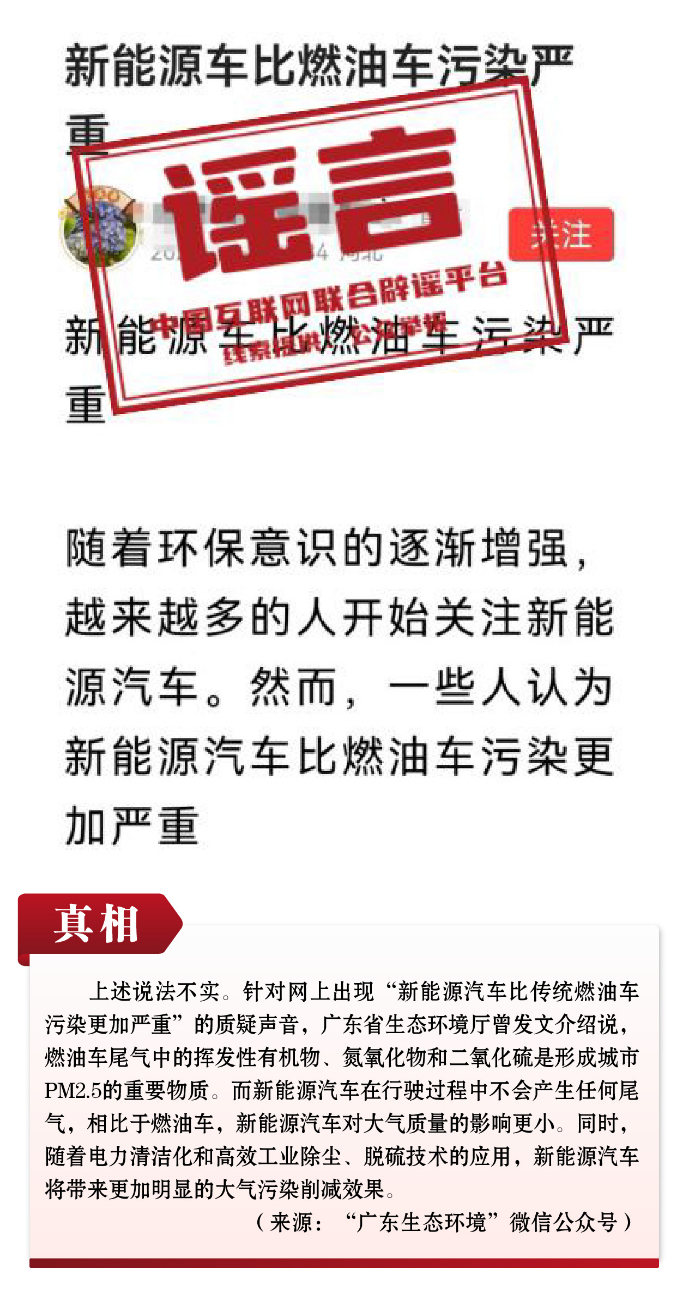
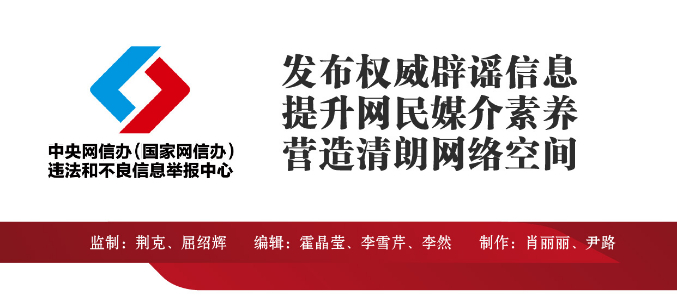
Distortion of policies to dispel social trust, hot spots causing anxiety and panic
——Overview of China's Internet platform for rumor refutation in December 2023
Recently, the Chinese Internet joint rumor refutation platform combed and analyzed online rumors in December 2023. Online data monitoring and netizen reports of that month showed that this month's false information related to public policies such as medical insurance and transportation was relatively concentrated, and rumors about earthquake disasters, safety accidents, respiratory disease prevention and other social hot spots were also common. These rumors capture the public's psychology of "looking forward to peace" at the end of the year, or distort the interpretation, or exaggerate, or deliberately hype, deliberately magnify the factors of anxiety, exaggerate anxiety, and cause adverse effects.
Misunderstanding people's livelihood policies and misleading the public 。 With the approaching of 2024, the New Year atmosphere is getting stronger. At the end of the year, we media used people's concerns about medical security, transportation and other people's livelihood hot spots to fabricate false information to attract people's attention, so as to win traffic benefits. For example, online rumors such as "the amount of medical insurance will be cleared by the end of the year" and "pharmacies have stopped paying the amount of medical insurance" have alarmed many insured people, and many medical security bureaus quickly refuted the rumors; Rumors such as "the criteria for drunk driving will change" and "Guangzhou has become the first city in China that restricts delivery" misled the public to form the false impression that "the punishment for drunk driving will be reduced" and the negative impression that "the policy is unfriendly to foreign selling riders"; "There is no service charge for train ticket refunding" false information is purely confused with individual experience and public policy. The above-mentioned dissemination of false information involving public policies misleads the public and causes adverse effects.
Grab social hotspots and exaggerate anxiety 。 On December 18, an earthquake of 6.2 magnitude occurred in Jishishan County, Linxia, Gansu Province. In the face of the disturbing earthquake, some people with ulterior motives used the public's concern, or incited emotions to attract attention, or used hot spot marketing to earn improper profits, spread rumors, and exaggerate anxiety. If someone maliciously fabricates and spreads rumors on the network, such as "Gansu Jishishan earthquake rescue dogs died after saving 36 lives", "down jackets donated to Gansu earthquake area were sold", "Gansu Red Cross Society charged high service fees", etc., which will interfere with the normal rescue and relief work. In addition, heavy snow fell in many parts of the country in December, respiratory diseases continued to occur at a high rate, hot social events occurred frequently, and there were many rumors of extreme weather, seasonal diseases, etc. If a marketing number hypes the rumor that "oseltamivir is out of stock and the price has risen", the real purpose is to raise the price to earn improper profits; "Snow can freeze the virus", "fewer people get sick in the snow" and other statements without scientific basis are easily biased against the public judgment.
Making up security rumors, causing adverse effects 。 Recently, in order to obtain more traffic, some people are willing to fabricate security rumors, which has caused bad social impact. If some netizens deliberately fabricated and released false information such as "electricity leakage in a college bathhouse in Zhengzhou, Henan caused 17 students to die", "a fire broke out in a college in Zhengzhou", "there were oil tanks in the fire warehouse", and "there was an explosion in the fire site", which caused public doubts and concerns; Some netizens used AI technology to automatically generate and spread the rumor that "a major traffic accident occurred on March 24 in Jiangxi and the investigation report was released", disrupting social order and stability; Some netizens released the false information that "someone stole a child and put it in a carton in Ledong, Hainan, causing suffocation and death" according to their subjective assumptions, which brought unnecessary panic to the society. The above rumor mongers were all given public security or criminal punishment by the public security organ according to law, and paid due price for their rumor mongering behavior.
In addition, in December, the "Today's Rumour Rejection" column of the China Internet joint rumor rejection platform focused on "typical rumors and misconceptions in the new energy vehicle industry", focusing on "new energy vehicles are more polluting than fuel vehicles", "new energy vehicles are short-lived and have limited development prospects", "new energy vehicles cannot be charged in rainy and snowy days", "new energy vehicles are more likely to catch fire than fuel vehicles" And other untrue information and online rumors about new energy vehicle industry policies, vehicle safety, environmental protection and other topics, and strive to clarify the fallacies, doubts and doubts for the public, and create a good online public opinion environment for the healthy and sustainable development of China's new energy vehicle industry.
At the beginning of the 2024 New Year, rumors related to holiday travel, tourism consumption, winter fire control, food safety, disease prevention and control and other fields may occur frequently, confusing the public and misleading cognition. In addition, at the end of each year, there is a seasonal high incidence period of fraud cases, and it is often impossible to prevent fraud schemes and routines. The China Internet Joint Rumour Rejection Platform reminds netizens to enhance their ability to identify rumors and their awareness of prevention, not be blinded by rumors, avoid falling into traps, and usher in a new year in safety and health.





















